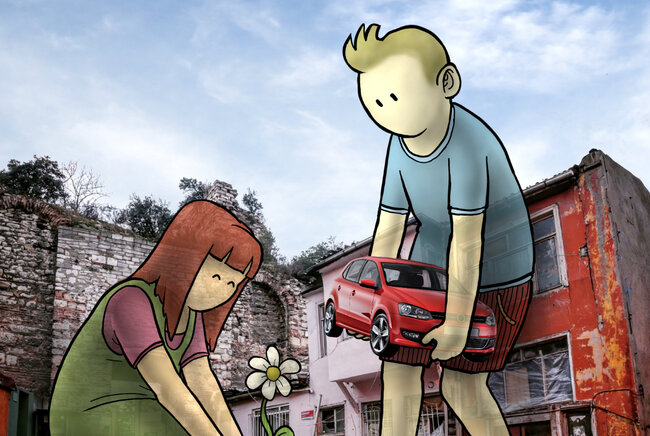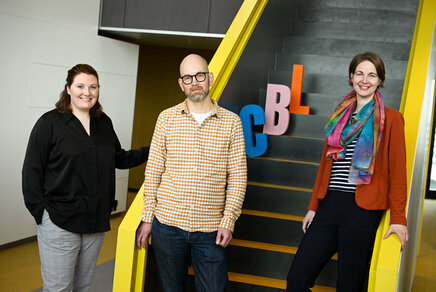Creating Cities for Children with Children
Özlemnur Ataol defended her thesis at the department of Built Environment on September 7th.

Children are citizens of today, and their well-being is a matter of the future of all nations. Children's active participation in life and decision-making reveals that "what is good for children is also good for society at large." For her PhD research, Özlemnur Ataol developed a child-focused vision of cities, drawing on participatory urban planning research with children and caregivers in Istanbul. Her research aims to better understand the participation and representation of children in urban planning processes.
Today, cities under the pressure of rapid urbanization increasingly tend to fail to provide citizens with public spaces for living. As a result of rapid urbanization, public spaces in cities like Istanbul have become attraction spaces rather than interaction spaces, kindling tension in accessing public spaces between different groups living in urban areas.
Children suffer the most from this tension as they are the first group to withdraw or be forced to withdraw from public spaces. However, public spaces are platforms for children to explore their society, in addition to positively affecting children's physical and mental development. As a result, there is an urgent need to rethink the design of certain aspects of cities from a child-focused point of view.

A child-focused vision of cities
For her PhD research, Özlemnur Ataol has developed a participatory journey towards a child-focused vision of cities, drawing on participatory urban planning research with children and caregivers in Istanbul.
Ataol's research aims to better understand and position the participation and representation of children in planning processes so as to inform urban policymaking and planning practice. Participation of children has proven to be pivotal in realizing cities for children, while enhancing knowledge on participatory urban planning processes with children is critical, especially in cities like Istanbul, where children's inclusion in planning processes is scarce.
Besides, this effort is vital where rapid urbanization has drastically impacted the lives of children where it has reduced their claim to quality urban public spaces and urban services, and impacted their right to the city.
Using children's capabilities in urban planning
Ataol's work has important implications for the general understanding of the utilization of children's unique capabilities linked to broader implementations in enabling urban prosperity for all. Fundamentally, the utilization of children's capabilities in urban planning paves the way towards creating cities for children, in which children – our future adults – pursue happy and healthy lives, while enhancing the social progress of nations.
Considering children's claims regarding nature, co-existence, and recycling in her research work, Ataol highlights that nations can contribute to the fight against climate change through their children's eyes. Based on these, Ataol's research calls attention to the fact that children are critical social agents in achieving sustainable and inclusive urban development, urging better positioning of children in participatory urban planning practices.
However, more empirical research in collaboration with children is needed in urban planning research to contribute to achieving Sustainable Development Goals and New Urban Agenda, to which Ataol's research subscribes.
Title of PhD-thesis: Cities for Children: Supporting Capabilities of Children and Caregivers through Participatory Urban Planning Research. Supervisors: prof.dr.ir. P.J.V. van Wesemael, dr. O. Druta, and dr. S. Krishnamurthy. Other main parties involved: the Ministry of National Education of the Republic of Turkey.
Media contact
Latest news
![[Translate to English:] [Translate to English:]](https://assets.w3.tue.nl/w/fileadmin/_processed_/b/d/csm_Lopes%20Cardozo%20Banner%20image%20BvOF%202024_0320_CZW%20Niek%20Lopes%20Cardozo_47a2e34d3b.jpg)

